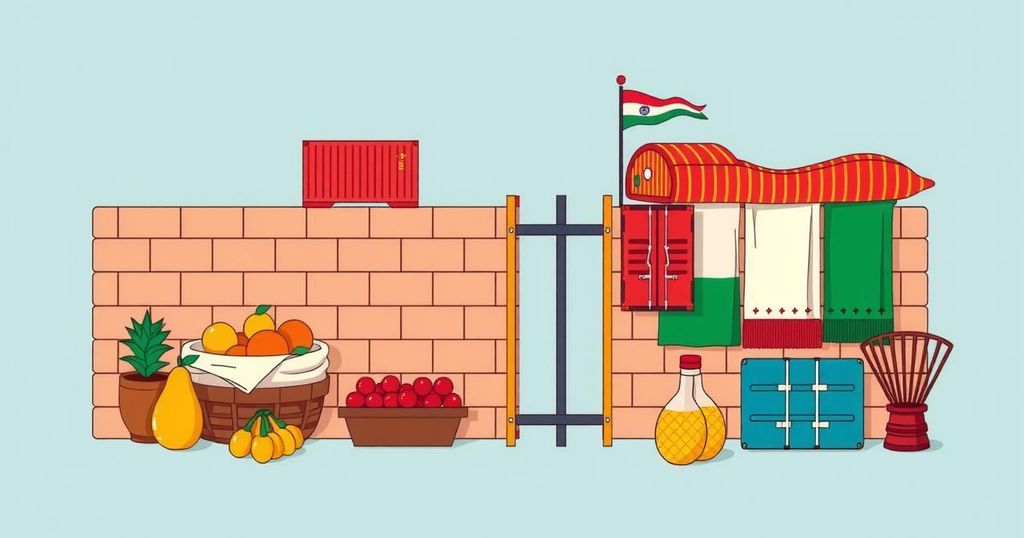Concerns Over Tunisian Traders Detained in Libya: A Call for Action

Mustafa Abdel Kabir of the Tunisian Observatory for Human Rights criticized the detention of over 50 Tunisians in Libya, including minors. He urged authorities to resolve ongoing border issues and cited a shared failure in managing crossings. Meanwhile, Libya’s Ministry of Interior continues to combat smuggling, following Tunisia’s severe penalties for smuggling incidents that have affected cross-border trade.
The Director of the Tunisian Observatory for Human Rights, Mustafa Abdel Kabir, has expressed concern regarding the detention of over 50 Tunisians in Libya, which includes two minors. He reported that Libyan authorities confiscated more than 25 vehicles belonging to Tunisian traders, with the detainees currently held in a Tripoli prison. Kabir urged both Tunisian and Libyan officials to address the ongoing difficulties and what he termed as “repeated assaults on Tunisian citizens.”
Abdel Kabir highlighted a “shared failure” in the management of border crossings and the implementation of decisions aimed at facilitating travel for citizens, emphasizing that “ordinary people are paying the price” for these shortcomings. Amidst these issues, the Ministry of Interior of Libya’s Government of National Unity has reaffirmed its commitment to combat all forms of smuggling and to implement measures that would protect the national economy and enhance public security.
In a related development, Tunisian authorities previously imposed a five-year prison sentence on a Libyan citizen for smuggling 150 kilograms of couscous, which provoked public outcry. This incident has contributed to a rise in the detention of Tunisian fuel smugglers and intensification of anti-smuggling operations, which local media characterize as affecting cross-border trade.
The current situation highlights the strained relations between Tunisia and Libya concerning cross-border trade, with significant implications for Tunisian citizens. The continued detention of Tunisians points to a need for improved bilateral relations and effective border management. Both governments must collaborate to resolve these issues and facilitate safe and legal trade between the two nations.
Original Source: libyaobserver.ly








